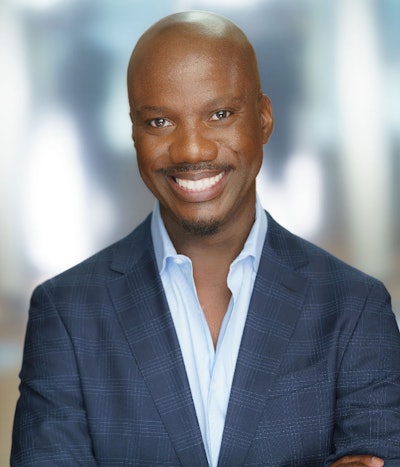Biden administration officials, institutional leaders, researchers, advocates, and students gathered in Washington D.C. Wednesday for the National Summit on Equal Opportunity in Higher Education to plot next steps after the Supreme Court’s decision against race-conscious admissions. Although the ruling was a blow to their interests, attendees vowed to fight for diversity in whatever ways that they could.
The summit was one of several responses that the Biden administration announced on the day of the ruling and the first one to come to fruition. The U.S. Department of Education also pledged to issue guidance to colleges and universities about what admissions practices remain legal, to release a report on admissions strategies for increasing diversity, to consider collecting and publishing more information on application and enrollment trends, and to help states analyze data that they already have. Secretary of Education Dr. Miguel A. Cardona speaks at the National Summit on Equal Opportunity in Higher Education
Secretary of Education Dr. Miguel A. Cardona speaks at the National Summit on Equal Opportunity in Higher Education
Multiple speakers at the summit critiqued the Supreme Court’s decision and reaffirmed their desire to achieve diversity by whatever legal means remain. Most prominent among them was Secretary of Education Dr. Miguel A. Cardona, who described the decision as “threaten[ing] to take us backwards,” and “a new low point” for higher education.
Cardona said that changes on several fronts will be necessary for colleges and universities to maintain the benefits of diversity, including increasing financial aid, expanding recruitment and relationships with K-12 schools, and fixing hitches in the transfer process. He also announced a new $45 million competition to elevate ways of helping minoritized students graduate but offered few other details.
Assistant Secretary for Civil Rights Catherine Lhamon said that individuals concerned with campus diversity should keep striving towards that goal.
“The court did not rule that working to achieve diversity is unlawful,” she said.
She emphasized that admissions offices can still consider an applicant’s background in relation to how it has affected their life experience, as described by Chief Justice John G. Roberts in his majority opinion. Lhamon pledged that the department’s guidance on permissible admissions practices would be available in August and advised that leaders ignore the statements of groups such as Students for Fair Admissions, the plaintiff in the race-conscious admissions cases, arguing that the ruling restricts race-conscious recruitment, financial aid, and data collection.
Elite schools that can no longer use race as a factor in admissions came in for some criticism of their other admissions practices.
Cardona said that selective colleges should increase their number of students who qualify for Pell Grants, “college rankings be damned.” “Do admissions practices that benefit the wealthy and well-connected reflect your values?” the secretary asked. Dr. Shaun Harper, founder and executive director of the Race and Equity Center at the University of Southern California
Dr. Shaun Harper, founder and executive director of the Race and Equity Center at the University of Southern California
Assistant Attorney General for Civil Rights Kristen Clarke called for schools to evaluate all of their admissions preferences to make sure that they don’t increase disparities, alluding to advantages given to legacies and athletes, who tend to be white and affluent.
Four-year institutions were also critiqued for not accepting more transfer students from two-year programs.
“It baffles me that highly selective colleges and universities are saying, ‘Oh, we don’t know where to find highly qualified, prepared students of color. Yet, there’s this whole supply of them at community colleges,” said Dr. Shaun Harper, founder and executive director of the Race and Equity Center at the University of Southern California, during a panel on equitable college completion. “The problem is, they don’t want them.”
Dr. Pam Eddinger, president of Bunker Hill Community College in Massachusetts, agreed.
“I’m surprised at the hand-wringing that goes on at our selective colleges. We know where your students of color are—they’re at my place,” she said. “Community colleges have been bringing students who are under-prepared and under-resourced up to the level of transfer so that they’re ready for you. Now, you need to do the lift in order to get them to complete, and that’s going to take money.”
Harper also argued that summits are not enough; that those who care about diversity have to make their arguments to everyday Americans.
“We’re talking to each other. Meanwhile, Ron DeSantis is likely standing in front of a much larger audience, offering a very different perspective,” he said. “We have to create bigger, more public spaces that counter myths and disinformation about what’s happening. We need a well-funded campaign that counters the ridiculousness. We have to fight back.”
The day also included off-the-record breakout sessions for the convened experts to gather and share information. Dr. Dominique Baker, an associate professor of education policy at Southern Methodist University who attended, called the sessions “useful.” But she said that she was withholding judgment on the Biden administration’s reaction to the decision.
“I appreciate what happened today,” she said. “But I’m still in a wait-and-see-space. I’ll come to a clearer understanding of what I think about the response once the guidance comes out from the Departments of Justice and Education.”
Jon Edelman can be reached at [email protected]


















